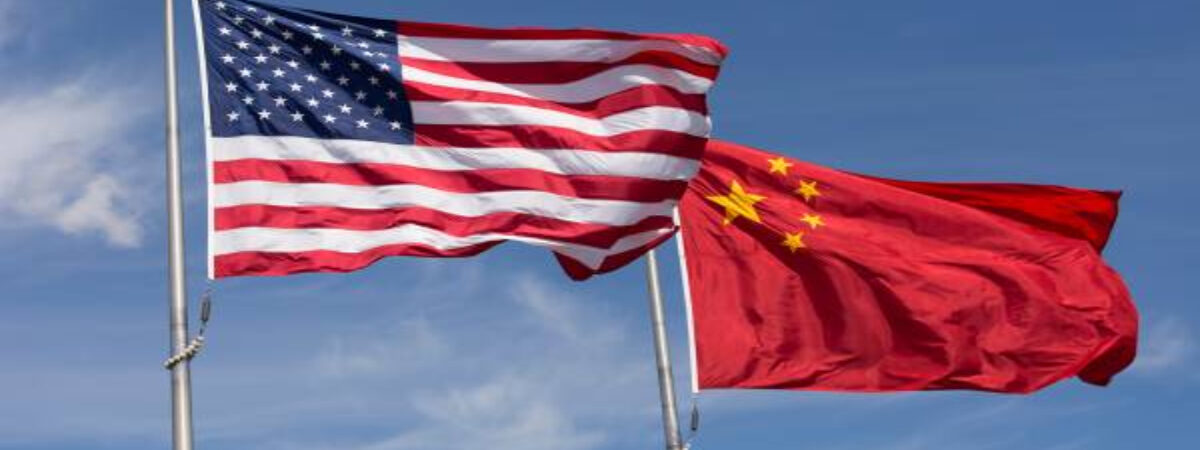US keeping tariffs on Chinese imports till Beijing opens up economy, trade representative says

US Trade Representative Katherine Tai suggested on Wednesday that punitive tariffs on Chinese imports will not come down until Beijing adopts more market-oriented trade and economic principles, says a media report.
Speaking in a discussion organised by the Carnegie Endowment for International Peace, Tai elaborated on US President Joe Biden’s economic strategy with respect to China, characterising it as the result of “an awakening” to the different histories and governance principles that have prevented Beijing from adopting what Washington expects from World Trade Organization members, the Star reported.
“What we really want from China in terms of economics and trade is for the Chinese economy to operate like ours, and along the assumptions and the norms that we feel are embodied in organisations like the World Trade Organization … which is open market-based with a pretty clean separation between government and state and the market and the economy,” Tai said.
“Until the day that China chooses a path to have its economy operate more like ours … we need to have more effective tools in ensuring that we can continue to compete and we can continue to allow our economy to thrive along the principles that our economy is built on,” she added.
“That is a combination of the tariffs that are in place” and initiatives like the Chips and Science Act, which Biden last month signed into law to provide government funding for domestic semiconductor manufacturing.
Other efforts include boosting trade with allies and countries open to agreement on labour and environmental standards through initiatives like the US-EU Trade and Technology Council and the Indo-Pacific Economic Framework (IPEF), which does not include China.
Tai’s comments follow months of speculation over whether Biden would begin to ease the tariffs that were put in place four years ago by his predecessor, Donald Trump. Those questions peaked as US inflation hit record levels earlier this year.
Some were poised for an indication that Biden would act on tariffs when White House National Security Council spokesman John Kirby said a day before the US leader’s most recent virtual summit with Chinese President Xi Jinping that the tariffs “were poorly designed” and “a shoddy deal”.
The US Federal Reserve began a series of aggressive interest rate hikes to tame higher prices, threatening to stall the economy and keeping the question of what to do about America’s punitive tariffs on Chinese imports at the forefront.
However, Biden did not end up discussing his plans for the tariffs. The US president instead brought up his “core concerns with China’s unfair economic practices, which harm American workers and harm American families”, according to a senior White House official who briefed journalists after the meeting.
Biden and Tai have often pointed to traditional trade liberalisation benefiting limited swathes of the US population as their main justification for avoiding trade agreements. It was a concern Trump emphasised in his campaign for the White House in 2016.
The top trade envoy has taken criticism from Republicans and Democrats for the lack of market access provisions in the IPEF and for not entering talks aimed at joining the Comprehensive and Progressive Agreement for Trans-Pacific Partnership (CPTPP).
The CPTPP is a later iteration of a multilateral trade pact that Trump pulled the US out of soon after he took office in 2017.
Tai on Wednesday continued to defend her approach as “a search for a new paradigm”.
“We as the United States need to be at the cutting edge of figuring out how … we deploy these more traditional tools that we have, including trade liberalisation, but to harness them to serve a larger purpose around resilience,” she said, according to the report in the Malaysian daily.
Tai added that “sustainability with respect to our planet and also the treatment of our people in our workers in the global economy” were priorities for the Office of the US Trade Representative.###
-
Book Shelf
-
 Book Review
DESTINY OF A DYSFUNCTIONAL NUCLEAR STATE
Book Review
DESTINY OF A DYSFUNCTIONAL NUCLEAR STATE
- Book ReviewChina FO Presser Where is the fountainhead of jihad?
- Book ReviewNews Pak Syndrome bedevils Indo-Bangla ties
- Book Review Understanding Vedic Equality….: Book Review
- Book Review Buddhism Made Easy: Book Review
- Book ReviewNews Elegant Summary Of Krishnamurti’s teachings
- Book Review Review: Perspectives: The Timeless Way of Wisdom
- Book ReviewNews Rituals too a world of Rhythm
- Book Review Marx After Marxism
- Book Review John Updike’s Terrorist – a review
-
-
Recent Top Post
-
 NewsTop Story
What Would “Total Victory” Mean in Gaza?
NewsTop Story
What Would “Total Victory” Mean in Gaza?
-
 CommentariesTop Story
The Occupation of Territory in War
CommentariesTop Story
The Occupation of Territory in War
-
 CommentariesTop Story
Pakistan: Infighting in ruling elite intensifies following shock election result
CommentariesTop Story
Pakistan: Infighting in ruling elite intensifies following shock election result
-
 CommentariesTop Story
Proforma Polls in Pakistan Today
CommentariesTop Story
Proforma Polls in Pakistan Today
-
 CommentariesTop Story
Global South Dithering Away from BRI
CommentariesTop Story
Global South Dithering Away from BRI
-
 News
Meherabad beckons….
News
Meherabad beckons….
-
 CommentariesTop Story
Hong Kong court liquidates failed Chinese property giant
CommentariesTop Story
Hong Kong court liquidates failed Chinese property giant
-
 CommentariesTop Story
China’s stock market fall sounds alarm bells
CommentariesTop Story
China’s stock market fall sounds alarm bells
-
 Commentaries
Middle East: Opportunity for the US
Commentaries
Middle East: Opportunity for the US
-
 Commentaries
India – Maldives Relations Nosedive
Commentaries
India – Maldives Relations Nosedive
-
AdSense code



















